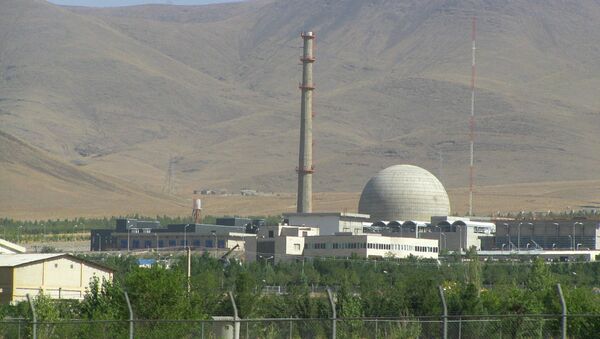VIENNA, November 23 (Sputnik) — Nuclear cooperation deal between Russia and Iran struck earlier in November is also important for the international community, as it ensures peaceful nature of Tehran's nuclear program, a non-proliferation analyst for the Arms Control Association told RIA Novosti Sunday.
"It is important for Iran, but it also provides greater assurance for the international community that Iran is not going to take its enriched uranium and move closer to nuclear weapons," Kelsey Davenport said. "Because taking the enriched material and fabricating it into fuel makes it less of a proliferation risk."
Davenport noted that the United States appreciated the role that Russia played in the talks between the so-called P5+1 and Iran.
"I think that the deal between Iran and Russia on further nuclear cooperation is very positive and contributes to the goals of the P5+1 in the negotiations. Because Russia will fuel the reactors for their entire lifespan, [and] this supports the P5+1 criteria of a limited Iranian uranium enrichment program. Iran will not need to build up a large program to provide fuel for these reactors. So that is certainly a positive development," Davenport said.
She also highlighted that the agreement between Iran and Russia to collaborate on fuel fabrication inside Iran is very important for Tehran "to get self-sufficiency in nuclear fuel production, because they are concerned about disruptions in supply and cooperation from the international community."
"Iran's clear interest in acquiring and mastering fuel fabrication supports their assertion that their program is entirely peaceful and that it is intended for civilian nuclear power reactors," the analyst concluded.
On November 11, Russia and Iran signed several agreements on the construction of two nuclear reactor units at the Bushehr nuclear power plant, using Russian technology, with the possibility of building six more in the future. An inter-agency memorandum of understanding for the expansion of cooperation in the field of nuclear energy for peaceful purposes was also signed.
Tehran claims its nuclear development is aimed purely at civilian needs, such as meeting the country's growing energy needs. However, the West suspects Iran of developing a nuclear weapon under the guise of a peaceful program.
During talks in Geneva in November 2013, Iran the P5+1 group, comprising Russia, the United States, the United Kingdom, France, China and Germany, agreed to reach a long-term comprehensive agreement, which would guarantee the peaceful nature of Tehran's nuclear program by July 2014. The deadline, though, was later extended to November 24.
The final round of the nuclear talks began in Vienna Tuesday.

